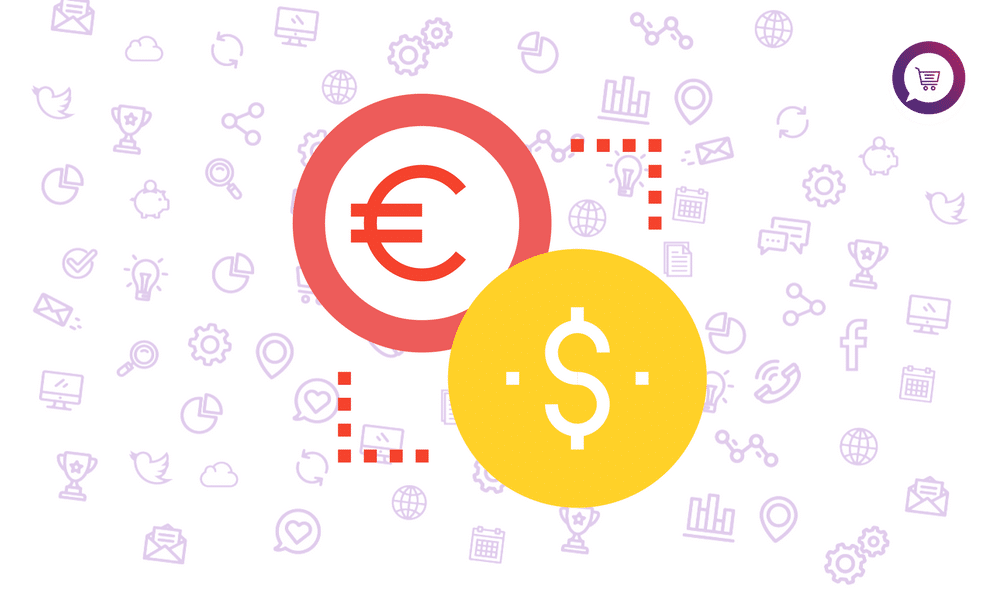Whether you sell socks, beauty products or electronics, dealing with an international clientele involves exposing your business to the volatile currency markets. Profits need to be repatriated into Sterling and invoices fulfilled in foreign currency. This can complicate your bottom line and obscure the clarity of your cash flow.
Although there are risks, these can be handled if you know a little about what makes the currency markets tick. This allows you to anticipate problems and plan to minimise the disruption to your business from adverse market movements.
What causes exchange rate movement?
Many factors can push an exchange rate higher or lower – including political events (including elections and announcements) economic data and forecasts, central bank meetings, policy documents and speeches, commodity prices, terrorism and even the weather.
Some events have a fleeting impact, while others can continue to create volatility many months down the line, such as the UK’s Brexit referendum, the US Presidential Election, and the Greek debt crisis.
Indeed, the GBP/EUR exchange rate is still around -17% lower than it was on the day of the referendum. This means that it now costs around £91,000 to pay a €100,000 invoice, whereas before the referendum it would have cost around £76,000. Of course, this means that repatriating profits from the Eurozone has now become more lucrative, because euros are now worth more pounds than formally.
The cost of leaving markets in control of your transfers
Exchange rates often fluctuate by around 5% each month, making it important to plan your currency transfers. Without preparation and the use of the right transfer methods, you need to leave a wide margin of error in your cash flow projections, limiting your ability to invest resources in growing your business.
Protect your profits with currency tools
There are two ways you can get the most for your money when paying overseas invoices or repatriating profits from abroad – getting the best exchange rate and timing your transfer when markets are strong.
Either one of these will improve your cash flow, while combining them can make a sizeable difference.
Different providers offer different exchange rates; something businesses may not realise. This is because foreign exchange providers purchase the currency on the private interbank market, at wholesale rates. The extent to which they mark-up this currency for resale to consumers varies depending upon the margin they need to make, which means some institutions will be able to get you more for your money by offering more competitive exchange rates.
Banks, for instance, tend to take a large margin as currency transfers do not constitute a large portion of their business and therefore each transaction needs to be as profitable as possible. Foreign exchange specialists can rely on the sheer volume of payments they process to be able to cover their costs while charging smaller margins.
Choosing a reputable currency broker can therefore see you getting a better exchange rate that boosts your repatriated profits or shrinks the size of your invoice payments.
Repatriating profits
If you are selling on online marketplaces, avoiding having your profits converted into your native currency by the retailer can help you avoid getting poor exchange rates that eat into your funds.
Using an overseas collection account from a currency broker is a good way to do this. Proceeds for any online sales can be paid into this account in the domestic currency and you can choose when to convert this to your home currency, allowing you to wait for the markets to move in your favour, while also benefitting from the better rate offered by the currency broker.
On top of this, you can use the regular information and market analysis provided by your currency broker to keep on top of movements in the market. This means you’ll know when the exchange rate is favourable, and when it might be set to fall. You can therefore make more informed decisions regarding when to convert your funds.
Timing makes all the difference; repatriating €100,000 worth of profits at the beginning of the second quarter of 2017, would have seen you receiving £84,910, but doing so 12 weeks later would have netted you £87,700 – nearly £3,000 extra.
Paying your overseas invoices
As we saw in the first example, one big political event can make your overseas invoices much more expensive to fulfil. What’s the solution to this volatility? Hedging. In short hedging involves taking steps to protect yourself from loss.
From a currency point of view, this can be done using one of several effective tools. The most commonly-used hedging instrument is a forward contract: an agreement between you and your broker to freeze a particular exchange rate for use up to a year in the future.
If you had done this on June 23rd 2016, you would be able to use that exchange rate a year later to get 17% more euros for your pounds than if you transferred at the going market rate. Whatever the market does, a forward contract is a beneficial investment because it allows you to accurately plan your costs. Cash flow becomes much more visible if you know exactly how much a particular invoice will cost to service.
Future proof your operating costs
As a busy business owner, you may be questioning how you can find time to implement a hedging strategy. It’s actually a lot easier than you might think, and it fixes one of the key problems facing your business.
A small amount of time devoted to planning and implementing a more effective foreign currency policy frees up resources later down the line in terms of your bottom line and cash flow projections.
What is your tip on cross-border payments? Share it with us below or Tweet us!





